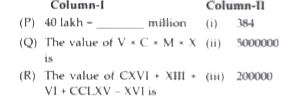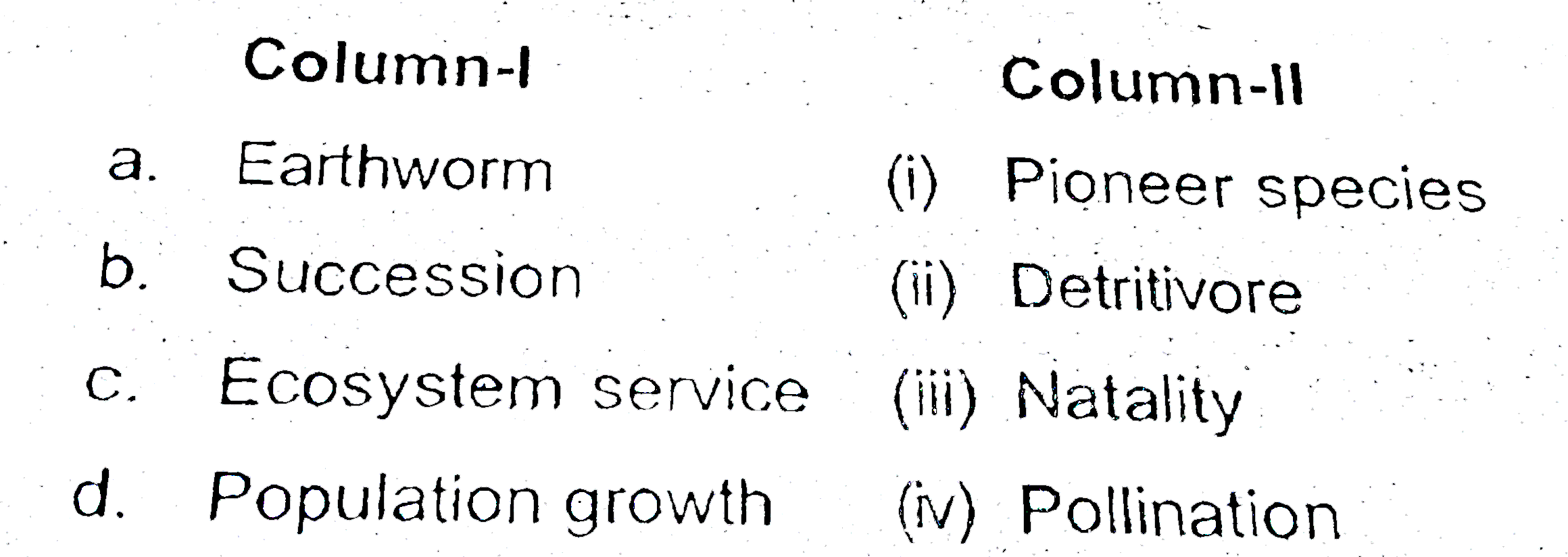Consider the following about the saturated solution and select the correct option.
A solution in which no more solute can be dissolved at the same temperature and pressure
The solution which is in dynamic equilibrium with solute dissolved in solvent
The solution in which more solute can be dissolved at the different temperature and pressure
Both (1) and (2) are correct
The correct Answer is:D
To solve the question about saturated solutions, we will analyze the definitions and properties of saturated solutions step by step.
1. Understanding Saturated Solutions:
- A saturated solution is defined as a solution in which no more solute can be dissolved at a given temperature and pressure. This means that the solution has reached its maximum concentration of solute.
Hint: Remember that a saturated solution is at equilibrium; any additional solute will not dissolve.
2. Dynamic Equilibrium:
- A saturated solution is also in a state of dynamic equilibrium with the solute that is dissolved in the solvent. This means that the rate at which solute dissolves is equal to the rate at which solute precipitates out of the solution.
Hint: Think of dynamic equilibrium as a balance between dissolution and precipitation.
3. Unsaturated Solutions:
- An unsaturated solution is one where more solute can still be dissolved. This occurs when the solution has not yet reached its maximum solute concentration at the given temperature and pressure.
Hint: An unsaturated solution can always take in more solute until it becomes saturated.
4. Evaluating the Options:
- Based on the definitions:
- Option 1: Correct - It accurately describes a saturated solution.
- Option 2: Correct - It describes the dynamic equilibrium characteristic of a saturated solution.
- Option 3: Incorrect - This describes an unsaturated solution.
5. Selecting the Correct Option:
- Since both Option 1 and Option 2 are correct, the correct choice is Option 4, which states that both 1 and 2 are correct.
Hint: Always check each option against the definitions to ensure accuracy.
Final Answer:
The correct option is Option 4: Both 1 and 2 are correct.
- A saturated solution is defined as a solution in which no more solute can be dissolved at a given temperature and pressure. This means that the solution has reached its maximum concentration of solute.
- A saturated solution is also in a state of dynamic equilibrium with the solute that is dissolved in the solvent. This means that the rate at which solute dissolves is equal to the rate at which solute precipitates out of the solution.
- An unsaturated solution is one where more solute can still be dissolved. This occurs when the solution has not yet reached its maximum solute concentration at the given temperature and pressure.
- Based on the definitions:
- Option 1: Correct - It accurately describes a saturated solution.
- Option 2: Correct - It describes the dynamic equilibrium characteristic of a saturated solution.
- Option 3: Incorrect - This describes an unsaturated solution.
5. Selecting the Correct Option:
- Since both Option 1 and Option 2 are correct, the correct choice is Option 4, which states that both 1 and 2 are correct.
The correct option is Option 4: Both 1 and 2 are correct.
Similar Questions
Knowledge Check
Match the following and select the correct option
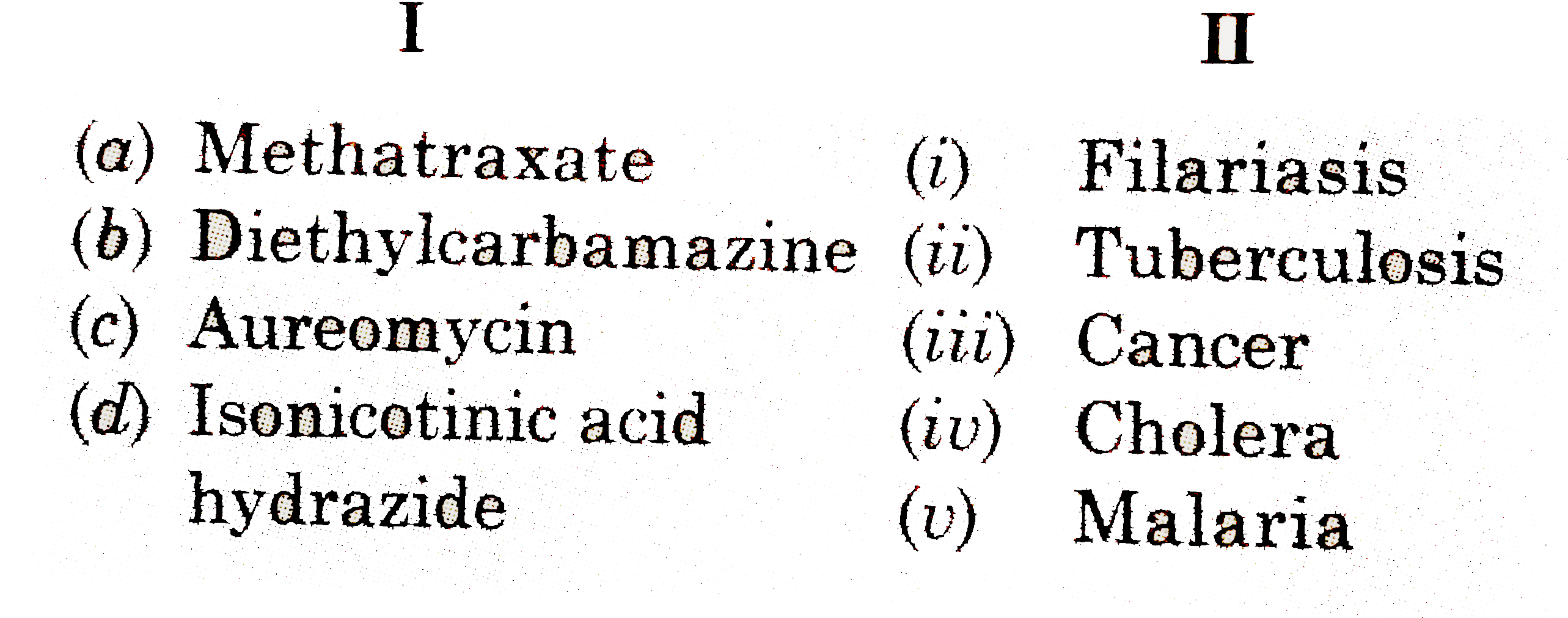 A(a - i), (b - ii), (c - iii), (d - iv)B(a - iv), (b - i), (c - iii), (d - ii)C(a - iii), (b - ii), (c - iv), (d - i)D(a - ii), (b - i), (c - iv), (d - iii)
A(a - i), (b - ii), (c - iii), (d - iv)B(a - iv), (b - i), (c - iii), (d - ii)C(a - iii), (b - ii), (c - iv), (d - i)D(a - ii), (b - i), (c - iv), (d - iii)match the following and select the correct option
 AA-1,B-2,C-3,D-4,E-5BA-2,B-3,C-4,D-1,E-5CA-3,B-5,C-2,D-1,E-4DA-3,B-1,C-5 , D-2 , E-4
AA-1,B-2,C-3,D-4,E-5BA-2,B-3,C-4,D-1,E-5CA-3,B-5,C-2,D-1,E-4DA-3,B-1,C-5 , D-2 , E-4Match the following and select the correct option
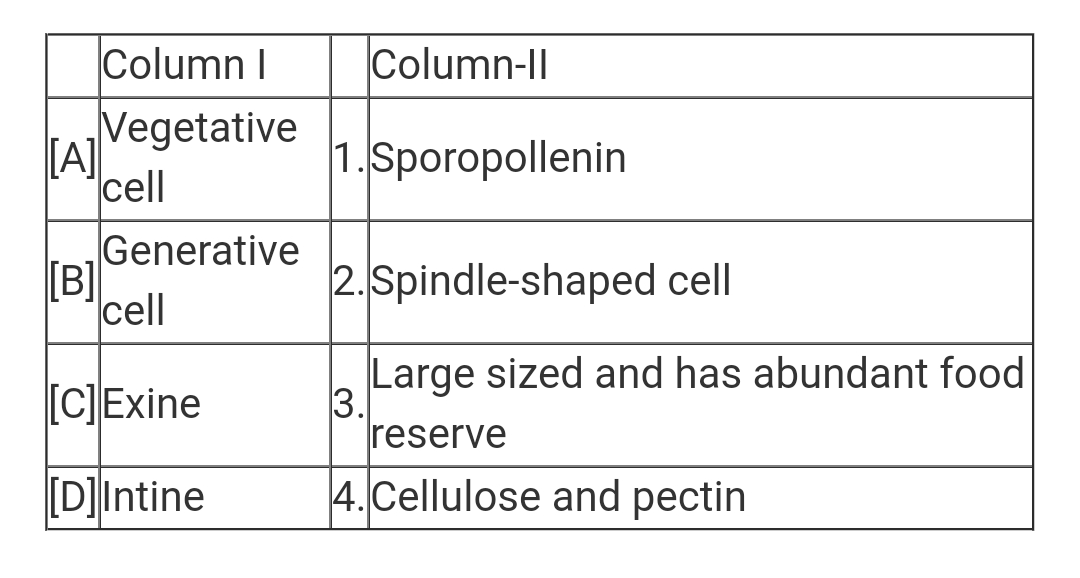 A(a - i), (b - ii), (c - iii), (d - iv)B(a - iv), (b - i), (c - iii), (d - ii)C(a - iii), (b - ii), (c - iv), (d - i)D(a - ii), (b - i), (c - iv), (d - iii)
A(a - i), (b - ii), (c - iii), (d - iv)B(a - iv), (b - i), (c - iii), (d - ii)C(a - iii), (b - ii), (c - iv), (d - i)D(a - ii), (b - i), (c - iv), (d - iii)
Match the following column and select the correct option.
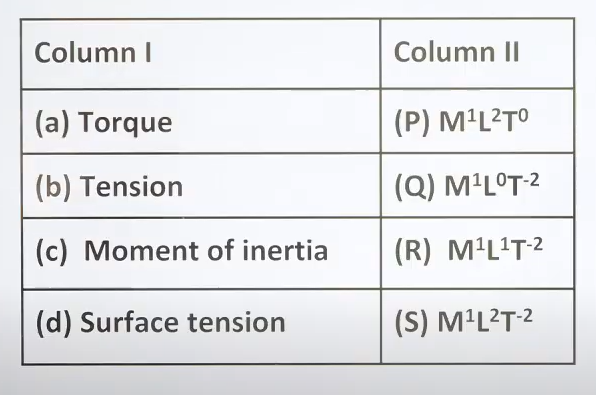
View SolutionMatch the following bacteria with the diseases and select the correct option
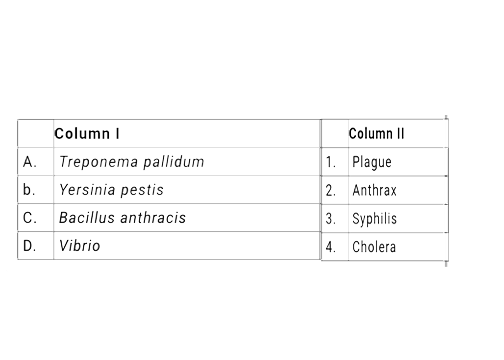
View SolutionMatch the following column and select the correct option.
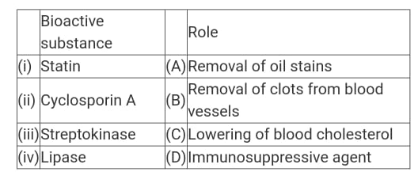
View SolutionMatch t he following and select the correct option
View SolutionConsider the following option about lyophilic colloids and select the correct option
View Solution

